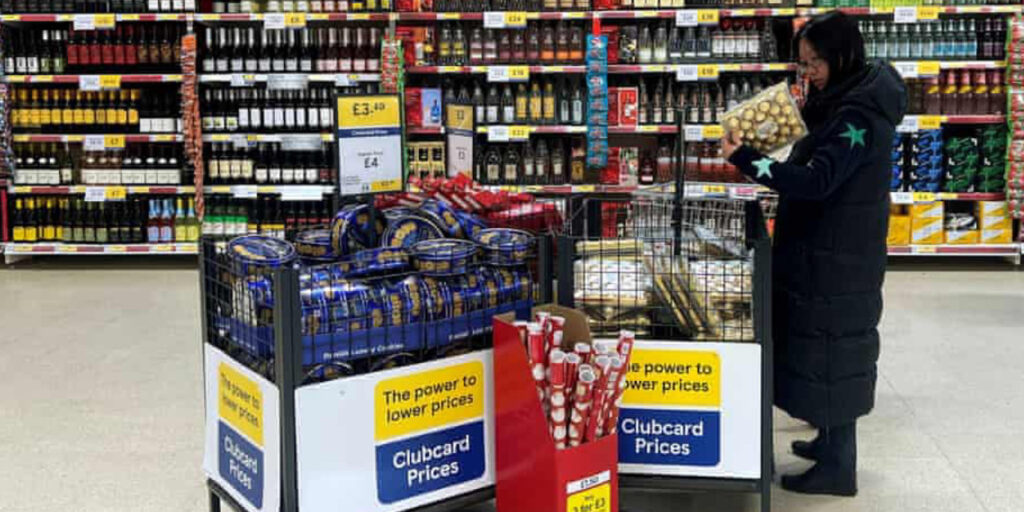Food price inflation in the UK surged to 3.7% in December, marking its highest level since March and driving a record-breaking season for supermarkets. The sharp rise in grocery prices helped push sales at major grocery chains up by 2.1% in the four weeks leading up to 29 December, according to data from market analysts Kantar.
The December inflation figure reflects a significant jump from 2.6% in November, with categories like confectionery, skincare, and juices leading the rise. Average household spending on festive take-home groceries climbed to an all-time high of £460, showcasing a consumer willingness to splurge during the holiday season.
Tesco, Sainsbury’s, and Lidl Outperform Asda Amid Challenges
Tesco retained its market leadership with a 5% increase in take-home grocery sales over the three months to December, boosting its market share to over 28%. Sainsbury’s followed with a 3.5% sales growth, while Lidl and Marks & Spencer recorded impressive gains of 6.6% and 8.7%, respectively.
In contrast, Asda experienced a 5.8% drop in sales, making it the only major grocer to see a decline during this period. Analysts point to IT challenges, price competition, and heavy debts from its £6.8bn buyout in 2020 as key factors behind the struggling chain’s underperformance. Allan Leighton, Asda’s newly appointed chair, faces mounting pressure to reverse the retailer’s fortunes.
Record Holiday Spending Despite Rising Prices
December’s grocery sales surpassed £13 billion for the first time, reflecting strong consumer spending during the holiday season. Fraser McKevitt, Kantar’s head of retail and consumer insight, noted that branded goods saw a 4.2% rise in sales, while premium own-label products surged by 14.6%.
Champagne and sparkling wine sales rose by 4.4%, totaling £187 million, while no- and low-alcohol beverage purchases increased, with 11% of shoppers opting for these alternatives compared to under 10% the previous year.
Online Grocery Sales Hit Record £1.6 Billion
More consumers turned to online grocery shopping during the festive season, with December online sales reaching a record £1.6 billion. However, the online market share dipped slightly to 11.9% from 12.5% a year ago, according to NielsenIQ, as shoppers increasingly sought savings in physical stores. Visits to brick-and-mortar grocery stores rose by 8%, contrasting sharply with declining foot traffic in non-food retail sectors.


